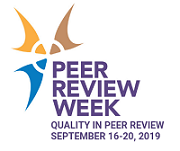
Johns Hopkins UniversityEst. 1876
America’s First Research University
Research and the Rites of Passage: Peer Review as part of the Process

If you wish to send a chill through an audience of graduate students and young scholars, just mention the custom among academic tribes known as “Publish or Perish.” Horror stories of punitive departmental and campus review committees often extend to the infamy of harsh editorial boards at journals and university presses. The stakes are high and, often, so are the publication acceptance standards. Less clear is whether consideration of manuscripts, whether for journal articles, conference podium presentations, or book publication, are fair.
I welcome an opportunity to write about this because my credentials are bona fide. Namely, I probably have more rejection letters from editors and publishers than most readers of this forum. Worth keeping in mind is that in scholarly writing for publication, batting averages do not count as the whole story. And, speaking of stories, if you happen to have a good story to tell via your research, whether in history or sociology or literature or zoology, quality and commitment ultimately matter a lot.
I like the concept and commitment of peer review in scholarly publication and research grants applications. It is not infallible, but I think it is a good and certainly well-intentioned practice to ward off nepotism, favoritism, bias, and arbitrary evaluations. It also connects academic writing to the customs of many groups and their demanding, competitive pursuits. Whether one is talking about soldiers in combat, gangs in high school, or NHL hockey players, a common thread is that the opinions and assessments by one’s peers are of paramount importance. In sum, peer review can function as a crucial “rite of passage” that leads to and celebrates one’s initiation into a scholarly or research circle.
My estimate is that miscarriages of justice in, e.g., academic reviews for tenure and promotion or in hiring are most likely to occur when genuine peer review in research is discarded in favor of other formats. Having a provost or dean interfere to over-ride a faculty review committee or an editorial board usually tilts the scale away from talent to other non-merit advantages.

Since I am mortal and fallible, especially in submitting research for consideration, I have some scars. The most surprising rejection letter I ever received was from a scholarly conference review board. One reviewer gave my paper proposal a low mark that was fatal. Why this brutal candor? To the reviewer, it was clear and fair, explained with the written comment: “The author of this paper failed to cite the influential work of historian John Thelin on this very topic.” To invoke the gospel of Britney Spears, all I could say was, “Oops! I did it again!”
Perhaps the most difficult and most important lesson to learn from the rejection reports is to read and heed what the reviewers write. I am pained to have to acknowledge that often the reviewers were right – and the best resolution was to incorporate suggestions promptly into a revised draft.
Whatever the demands and anxieties fostered by peer review in scholarly publication, I am more bothered by examples where I see a nearby faculty member who received promotion and tenure without having written many articles or books that were subject to peer review and external referees.
Within the boundaries of peer review, I like to invoke a preference for quality over quantity in scholarly publication. I once heard from a distinguished geologist that within their field, they were wary of a colleague who presented numerous articles that were variations on the same theme. Fitting for geologists, they referred to this disingenuous practice as “mining the vein” – and they also thought it tended to result in more scholarly lead than gold.
If one important implication of peer review research and publication is being a candidate for some reward or award, here’s an intriguing strategy I have learned about in serving as an external reviewer for some outstanding universities: ask candidates or applicants to submit for consideration only selected works. According to this approach, one is asked to list and then comment on no more than five pieces of work. Suddenly, bulk and volume are exposed as dubious. Focusing on quality in selected works prompts a writer and researcher to lean toward significance and excellence. At best, peer review can be a healthy, fair partner in that endeavor.
John R. Thelin is a professor at the University of Kentucky. His two most recent books include Going To College in the Sixties (2018) and a new third edition of A History of American Higher Education (2019), both published by Johns Hopkins University Press.
This post is part of our celebration of the fifth annual Peer Review Week, with the theme “Quality in Peer Review”. Come back each day for insight from one of our book authors into the role of peer review in their work.



